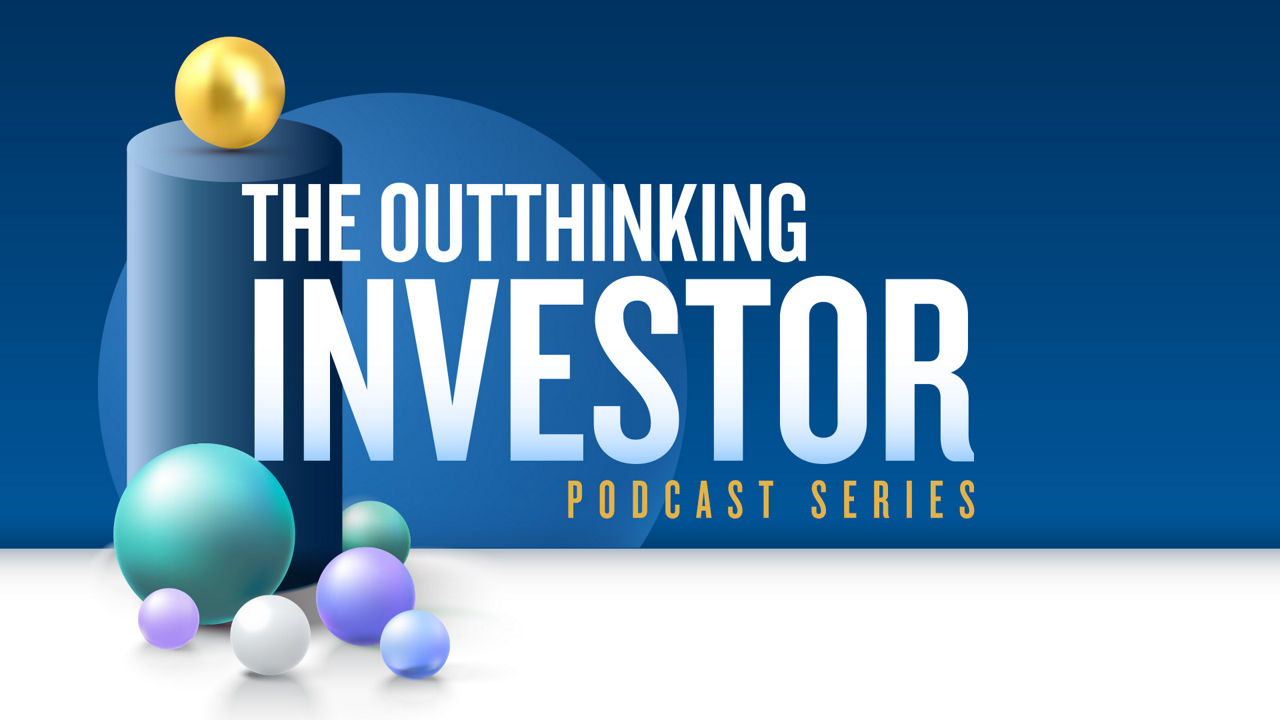PGIM held its fifth annual EMEA Investor Forum in London on November 19, 2024. During the day, we discussed many investment themes and ideas that are top-of-mind for CIOs and experienced investment professionals. PGIM’s CEO David Hunt shared his top three themes for 2025. We heard about the changing economic landscape from Katharine Neiss –Deputy Head of Global Economics and Chief European Economist at PGIM Fixed Income, and Peter Hayes, Global Head of Investment Research at PGIM Real Estate. Ibtissem Sfaxi – Head of EMEA Business Development, PGIM Real Estate, dissected the latest trends in private alternatives in her conversation with some PGIM specialists. Eugenia Jackson – Global Head of ESG, PGIM, explored the hot-button topic of engagement in the investment process. Finally, a panel of leading CIOs from Brightwell, Pension Protection Fund and Local Pensions Partnership Investments shared their perspectives on various topics.
-
Threading the Needle: Navigating Today's Macroeconomic Environment The global economy is transitioning to an environment with higher interest rates, elevated public debt, and increased geopolitical risks. The panel discusses how investors can successfully navigate this complex macroeconomic environment. Will Europe have the fiscal space and political will to enact changes to protect itself from the rising tide of trade protectionism?
-
Three Emerging Themes in 2025 & CIO Vantage Point: Panel Discussion PGIM Chairman David Hunt, introduces his three emerging themes for 2025 before inviting a distinguished panel of CIOs to discuss their insights on next year’s themes; how can the UK pension industry support the new government’s growth objectives and what are some of the opportunities and challenges for the broader industry.
-
EMEA Research: The Rise and Rise of Private Markets The flow of institutional funds into private alternatives has been larger than at any previous time in history. We see this trend accelerating as investors value the income-generating properties and the diversification benefits of this asset class. A research study of 250 institutional investment decision-makers at institutions in Europe and the Middle East, found that more than 75% of the survey respondents anticipate taking on more risk over the next two years. The panel unpacks the drivers, opportunities and headwinds among various categories of private alternatives.
-
Global Research: Redefining Risk in an Increasingly Turbulent World The present environment of heightened geopolitical uncertainty highlights a turbulent period for the global economy. PGIM surveyed 400 institutional investors , representing approximately $9 trillion of assets under management, to find out how they forecast and mitigate risk in their portfolios. The panel explores key insights from the study and discusses potential investment opportunities arising from governments' industrial policies.
-
Great Expectations: Is Engagement Living Up to its Promise? Trust-based, informed dialogue between investors and investees is integral to identifying risks and pursuing positive investment outcomes over different time horizons. However, there is a growing realisation that engagement for positive sustainability outcomes does not meet its proponents' expectations. The panel discusses whether an engagement expectation gap is emerging.
-
Navigating the Securitised Landscape: Uncovering Opportunities Today and Beyond The global securitised market is worth around $5 trillion and influences many areas of the broader economy, ranging from consumer loans to residential real estate. The asset class is seeing a resurgence as fixed-income investors look to diversify beyond traditional corporate credit holdings.
-
Castles in the Cloud: How Infrastructure Lies at the Heart of the AI Revolution We are in the midst of an AI-driven investment cycle transforming the technology sector and the global economy. However, the increased adoption of AI is not without its challenges. The panel unpacks the current AI ecosystem and explores the implications of its future development on investment opportunities.
-
Trading Off: The Energy Transition's Hard Truths The energy transition is transforming the global economy, and the new forces are creating a set of winners and losers. Three themes are a recurring motif in the evolving energy landscape: 1) having a dependable and affordable supply of energy supply is essential for countries, 2) electricity generation from renewable energy resources is growing at a staggering rate, and 3) reliance on fossil fuels will continue for decades. The panel considers how the energy transition is proceeding at different paces in different places.
-
What's Your End Game? The Implications of a Surging Pension Risk Transfer Market The current higher-for-longer interest rate environment means improved funding ratios for global pensions, leading to a booming pension risk transfer market globally. The evolving funded status picture for pension funds brings a different set of challenges, opportunities, and decisions for CIOs. The panel discusses the latest trends.
Up Next
Quick Take: 6 key insights from the 2024
At the 2024 EMEA Investment Forum in London, PGIM hosted an afternoon of discussion, debate, and peer-to-peer networking to help investors assess the market outlook, explore the geopolitical forces reshaping the economy, and identify emerging opportunities across public and private markets. Below are our six key insights from the day:
- 1. EMERGING THEMES IN 2025
- 2. THREADING THE NEEDLE
- 3. REDEFINING RISK
Top Themes for 2025 and Opportunities in the UK
“The last 18 months have seen the biggest rotation of capital I can remember.” David Hunt, President & CEO, PGIM
The top three themes for 2025 in CIOs’ minds are the great rotation of capital, political outcomes, and geopolitical risks.
Capital Shifts: CIOs remain overweight on the U.S. economy due to the resilience of the labour markets and robust corporate profitability. Japan has been the biggest beneficiary of heightened U.S.-China trade tensions and an improving economic outlook. Indonesia and Vietnam are seen as attractive capital destinations as investors reassess the outcome of realigning supply chains. However, the ease of accessing capital markets in developed economies compared to their emerging market counterparts remains crucial for investment allocations. On the other hand, there is little appetite for fresh investments in core Europe, with investors also staying away from China. However, stimulus packages might rekindle investor interest in the latter.
Political Changes: The great year for democracy has proved to be a rough one for incumbents. However, the biggest loser is the government's balance sheet. Fiscal responsibility has taken a backseat, with political parties in many countries preferring to stay silent on this important subject. For example, the UK's average issuance of government debt has jumped to around £260 billion annually, compared to £50 billion before 2008. While central banks can control short-term policy rates, investors are growing concerned about the longer end of the government bond markets due to the deluge of supply, leading to steeper yield curves.
Geopolitical Risks: Geopolitical risks are growing worldwide, and that is the No. 1 risk for investors. For example, the America first policy in the U.S. is changing the conventional world order and leading to a more unpredictable investing environment. CIOs are preoccupied with making portfolios resilient and diversifying investments in a world of increasing trade frictions. Investors are increasingly testing the impact of different scenarios on their portfolios to reduce the downside risks.
A changing investment paradigm for asset owners
“We need to think that the past is no longer a good guide to the future. Narratives and trends that were there for years have been stood on their head, and we need to look at things afresh.” Katharine Neiss, Deputy Head of Global Economics and Chief European Economist, PGIM Fixed Income
Until recently, the period since the global financial crisis was almost a false economy in which low interest rates drove asset values. That is changing. For example, the past two decades have been about sector bias in real estate. But it has now pivoted to geographies and the importance of different cities as economic drivers. As society ages, productivity matters more; therefore, capital allocations must be made accurately to boost productivity.
The conventional narrative for Europe is that the bloc is saddled with too much debt. But that is no longer the case. The debt-to-GDP ratio for the region’s peripheral economies—traditionally a concern for investors—is lower now than before the pandemic. Europe’s new challenge is the weakening growth outlook in the core economies such as Germany.
The broader concern for Europe to stimulate growth is not a lack of money as they have the fiscal means but the fiscal infrastructure and political choice to implement key facets of the Mario Draghi report. The region needs deeper capital markets and more private capital. That is only possible through deeper financial integration. The two main obstacles are concerns about more significant financial risks and loss of sovereignty. However, the rewards greatly outweigh the risks, as investors have always welcomed any pan-European integration news.
Shifting Dynamics in a Multipolar World
“For the EU, I like the sheet music, but the EU hasn’t formed the band, found the instruments, and is not playing in harmony yet.” Taggart Davis, Vice President, Government Affairs, EMEA
The global economy has moved into a multipolar environment, making it difficult for investors to assess geopolitical risks. In our 2024 risk report, about 56% of institutional investors, representing $9 trillion of assets under management, say the threat level from geopolitical risk is high over the next 24 months.
Europe is particularly exposed to these changing dynamics. The U.S. has become an unpredictable trading partner, and the risk of escalated U.S. and China tensions leaves Europe vulnerable. In response to a likely escalation in tariffs, Europe may adopt a more protectionist approach in its trade policy.
However, the underlying trend of geopolitical realignment doesn’t have to be harmful, and there could be potential winners and losers. Long-term investors shouldn’t be too obsessed with the impact of geopolitical risks in the short term, as the effect on asset prices tends to fade over long periods. However, investors should be wary of when a regional political event or conflict can spill globally into the broader financial markets.
Investors should strive to stay with resilient and diversified portfolios. While geopolitical risks cannot be easily hedged with financial instruments, asset owners could take a more strategic view of their portfolios and allocate suitably to defensive assets or companies with resilient supply chains.
- 4. ENGAGEMENT
- 5. PRIVATE MARKETS
- 6. SECURITISED LANDSCAPE
How can ESG engagement make a difference?
“Less is often more. Don’t spread yourselves too thinly. But to achieve real results or expectations is to go narrow and deep.” Ian Burger, Head of Stewardship and Integration, Universities Superannuation Scheme.
Engagement is an important tool in investors’ toolboxes to drive shareholder value. However, there is growing pressure on investors to spend more time engaging with companies to address different issues. That has also resulted in some frustration because the pace of change arising from increased engagement has lagged expectations.
For engagement to be successful, it has to be a win-win situation for companies and investors. Stakeholders must be unified around the common goal of improving business decisions and investment performance. Engagement often breaks down when there is a misalignment between investor and corporate interests. For example, the engagement goal of the Paris Climate Accords alignment by 2050 may be too ambitious if targeted companies see certain engagement expectations as economically unviable in the context of current government policies.
Investors also need to understand issues that can be addressed at the corporate and broader systemic levels. They should recognize and be transparent about the limitations of engagement in the investment process.
Opportunities for investors as Private Markets take centre stage
“Anytime you have gone through such an increasing pace of asset adoption, the so-called golden age of credit, mistakes will be made..” Matthew Harvey, Executive Managing Director and Head of Direct Lending, PGIM Private Capital
The flow of institutional capital into private markets has grown exponentially in recent years. A research study of institutional investors in Europe and the Middle East representing assets of $10 trillion under management found that respondents have invested 25% of their portfolios in private alternatives.
In private equity investing, a broader trend towards mega funds will continue due to capital efficiency and lesser complexity in managing various relationships. Large asset allocators gravitate towards established brand names due to better processes and regulatory frameworks. Moreover, from a capital deployment perspective, larger firms have a global reach, helping them pivot across markets. However, bigger private equity firms face challenges due to higher borrowing costs and fewer exit options.
A higher for longer interest rate environment has resulted in increased returns for direct lending investors. However, it has also caught the industry off guard, with the rate-tightening cycle leading to higher interest costs for leveraged balance sheets, resulting in a significant drain on cash flows and weaker credit metrics. However, due to relatively tighter covenants, direct lending strategies are quicker to avert default. Manager skills are essential to driving recoveries, and larger asset managers have greater expertise.
In real estate, declining interest rates has resulted in a bottoming out of valuations. However, the recovery will be nuanced as investors focus on rental and income growth. Changes in lifestyle patterns, from students to families and older people, are key valuation drivers.
Uncovering opportunities in an uncertain fixed-income market landscape
“We are seeing a broadening of the investor base from insurance, pension and retail participants. Many investors weren’t too familiar with the asset class. There has been a resurgence as they seek to diversify away from corporate credit.” Gabe Rivera, Co-Head of Securitized Products, PGIM Fixed Income.
The global securitised market is worth around $5 trillion and touches the broader economy, ranging from consumer loans to residential real estate. This asset class comprises asset-backed securities, commercial mortgage-backed securities, CLOs, and residential mortgage-backed securities.
With corporate spreads near record levels, fixed-income investors are wary of owning duration in the current stage of the economic cycle. Securitised products offer investors the opportunity to own spreads at a higher level of the capital structure with attractive risk-adjusted return profiles.
At current spread levels, against the backdrop of rising geopolitical risks and uncertainty, securitized products offer a higher income with lesser spread durations. European “AA” CLOs offer value.
you may also like
-
European Outlook 2025PGIM experts share their independent flash views on the outlook for the European economy and markets.
Read More
-
The Outthinking InvestorAn award-winning podcast from PGIM. Hear from global thought leaders and PGIM experts to understand the current trends and forces reshaping global finance.
Read More
-
PGIM 2024 Global Institutional SummitThe 2024 Global Institutional Summit brought industry leaders, asset allocators and policymakers together in New York City.
Read More



